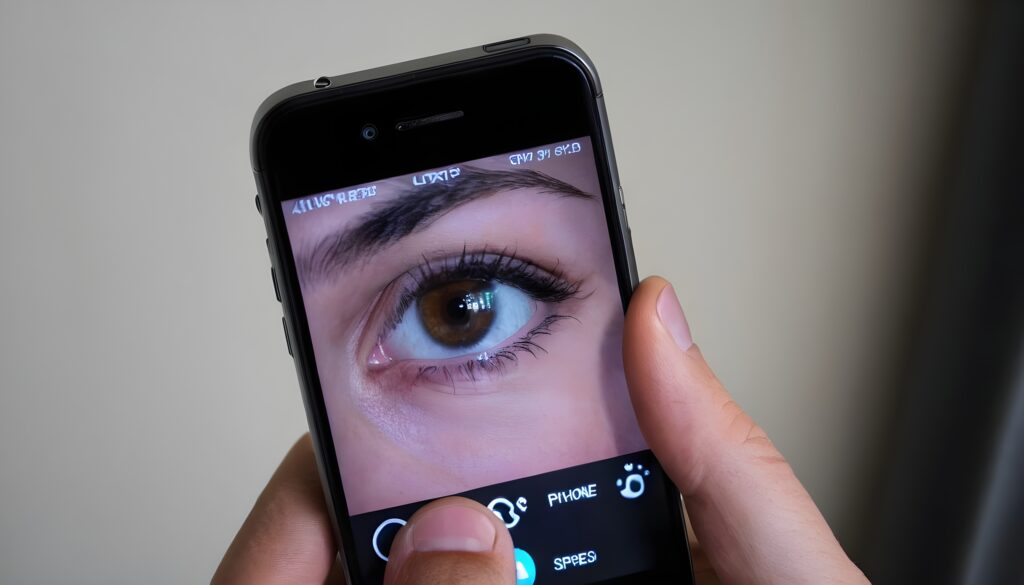In today’s digital age, privacy concerns are more relevant than ever. My phone is being spied on!! The thought of someone snooping on your phone is unsettling, but being aware of the signs can help you take action. This article explores various indicators of potential phone surveillance and offers practical tips to safeguard your device.
My Phone is being spied on! How to Know and What to do????

Signs of Phone Surveillance:
Draining Battery Faster than Usual:
- Unexpected battery drain is a red flag for potential spying.
- Keep an eye on your battery usage in settings to spot any unusual patterns.
Strange Apps Popping Up:
- Regularly check your list of apps for any unfamiliar or suspicious additions.
- Delete any apps you didn’t knowingly install or recognize.
Phone Getting Unusually Hot:
- Overheating may indicate the presence of malicious software.
- Monitor your phone’s temperature and investigate sudden spikes.
Skyrocketing Data Usage:
- Spyware might lead to increased data consumption for transmitting information.
- Check your data usage through your phone settings and investigate any spikes.
Frequent Device Malfunctions:
- Frequent crashes or freezes can be a sign of malware.
- Stay proactive by keeping your operating system updated and running security scans.
Weird Noises During Calls:
- Unusual background noises could mean your calls are being intercepted.
- Pay attention to strange sounds and report them to your service provider.
Odd Browsing History:
- Check your browser history for any unfamiliar websites or content.
- Regularly clear your browsing history and practice safe browsing habits.
How to Keep Your Phone Safe from Prying Eyes:
Arm Your Phone with Reliable Security Apps:
- Install trustworthy antivirus and anti-spyware applications.
- Keep these security apps up to date for optimal protection.
Keep Your Operating System Updated:
- Regular updates are like a shield against vulnerabilities.
- Enable automatic updates or check for updates manually on a regular basis.
Be Mindful of App Permissions:
- Review app permissions before installation and limit unnecessary access.
- Regularly audit app permissions in your phone settings.
Be Wary of Public Wi-Fi for Sensitive Activities:
- Public Wi-Fi networks are more susceptible to security breaches.
- Secure your internet browsing with a Virtual Private Network (VPN).
Encrypt Your Device:
- Enable device encryption to safeguard your data from unauthorized access.
- Set up secure lock screen patterns or use biometric authentication.
Frequently Asked Questions (FAQ):
Q1: Can a factory reset get rid of spyware?
A1: While a factory reset can eliminate most spyware, it’s essential to back up your data first and ensure that the malware isn’t embedded in system files.
Q2: How can I detect spyware on my iPhone?
A2: Apple devices have built-in security features. Regularly update your iOS, avoid jailbreaking, and use reputable antivirus apps if you suspect spyware.
Q3: Is it possible for someone to spy on my phone without physical access?
A3: Remote installation of spyware is highly unlikely. Typically, physical access to the device is required for installation.
Q4: Are free antivirus apps effective in protecting against spyware?
A4: While some free antivirus apps offer basic protection, premium versions often provide more robust features and frequent updates. Consider your security needs and opt for a reputable solution.
Q5: Can spyware be hidden within seemingly harmless apps?
A5: Yes, spyware can disguise itself within seemingly legitimate apps. Be cautious when downloading apps, particularly from unofficial sources, and read reviews to ensure legitimacy.
Q6: Should I be concerned about government surveillance on my phone?
A6: While mass surveillance by governments is a concern, it’s more common for individuals to be targeted by cybercriminals. Following security best practices helps protect against both threats.
Q7: What should I do if I suspect my phone is being monitored?
A7: Take immediate action by running a security scan, removing suspicious apps, and updating your operating system. If concerns persist, contact your phone manufacturer or seek professional assistance.
Q8: Can using a password manager enhance my phone’s security?
A8: Yes, a password manager adds an extra layer of security by generating and storing complex passwords. It reduces the risk of unauthorized access to your accounts and personal information.
Q9: Are there specific signs of spyware on Android devices?
A9: Signs of spyware on Android devices include unusual battery drain, data usage spikes, and unfamiliar apps. Regularly review app permissions and use reliable security apps for added protection.
Q10: How often should I change my phone’s passwords and PINs?
A10: It’s advisable to change your passwords and PINs regularly, at least every few months, to reduce the risk of unauthorized access. Use strong, unique passwords for enhanced security.
Remember, staying informed about potential threats and taking proactive measures are key to safeguarding your phone and personal data from unauthorized surveillance.


